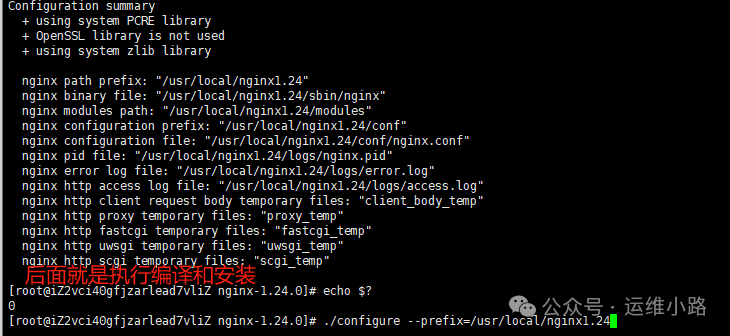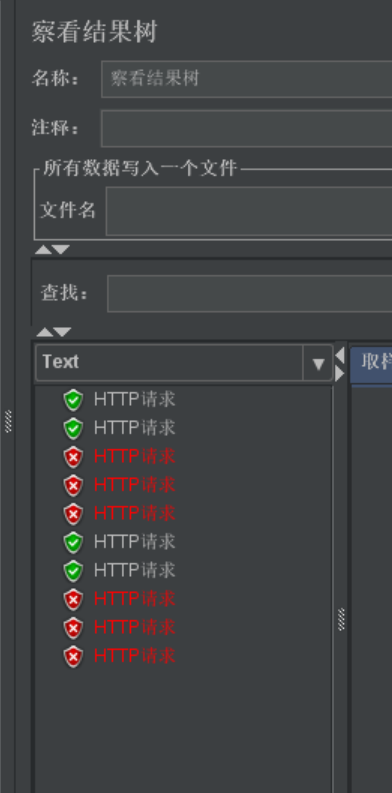在 GATK(Genome Analysis Toolkit)中,AlleleList 接口是一个用来表示等位基因(alleles)列表的接口。Allele 是遗传学中用于表示某一特定基因座的不同形式的一个基本单位。AlleleList 接口定义了一些操作,使得处理和访问一组等位基因更加方便。
AlleleList 的实现类和继承接口

使用场景
AlleleList 及其实现类在 GATK 中主要用于表示和操作基因型数据中的等位基因集合。典型场景包括:
- 变异检测:在不同样本中检测和分析不同的等位基因时,需要管理多个等位基因的集合,这时候会用到
AlleleList。 - 基因型计算:在计算样本的基因型时,可能需要迭代多个等位基因,并根据等位基因的组合进行计算。
通过 AlleleList 接口,GATK 提供了一个统一的方式来处理等位基因列表,增强了代码的可读性和模块化,使得等位基因的管理变得更加直观和高效。
AlleleList接口源码
package org.broadinstitute.hellbender.utils.genotyper;
import htsjdk.variant.variantcontext.Allele;
import org.broadinstitute.hellbender.utils.Utils;
import java.util.AbstractList;
import java.util.List;
/**
* Minimal interface for random access to a collection of Alleles.
*/
//Note: Names in this interface are unusual because of name clash in a subclass.
// For example the name of AlleleList.alleleCount() cannot be simply size(), as would be usual,
// because {@link ReadLikelihoods} implements AlleleList and SampleList and then size() would be ambiguous.
public interface AlleleList<A extends Allele> {
static <A extends Allele> AlleleList<A> newList(final List<A> alleles) {
return new IndexedAlleleList<A>(alleles);
}
/**
* Returns the number of alleles in this AlleleList.
*/
int numberOfAlleles();
/**
* Returns the index of the given Allele in this AlleleList.
* Returns a negative number if the given allele is not present in this AlleleList.
* @throws IllegalArgumentException if allele is null.
*/
int indexOfAllele(final Allele allele);
/**
* Returns the allele at the given index in this AlleleList.
* @throws IllegalArgumentException if index is negative or equal
* to or higher than the number of elements in this AlleleList {@link AlleleList#numberOfAlleles()}).
*/
A getAllele(final int index);
/**
* Returns <code>true</code> if this AlleleList contains the specified allele
* and <code>false</code> otherwise.
*/
default boolean containsAllele(final Allele allele) {
return indexOfAllele(allele) >= 0;
}
AlleleList<Allele> EMPTY_LIST = new AlleleList<Allele>() {
@Override
public int numberOfAlleles() {
return 0;
}
@Override
public int indexOfAllele(final Allele allele) {
Utils.nonNull(allele);
return -1;
}
@Override
public Allele getAllele(final int index) {
throw new IllegalArgumentException("allele index is out of range"); //we know this without checking because it's an empty list
}
};
/**
* Returns an unmodifiable empty allele-list.
* @param <A> the allele class.
* @return never {@code null}.
*/
@SuppressWarnings("unchecked")
static <A extends Allele> AlleleList<A> emptyAlleleList() {
return (AlleleList<A>) EMPTY_LIST;
}
/**
* Checks whether two allele lists are in fact the same.
* @param first one list to compare.
* @param second another list to compare.
*
* @throws IllegalArgumentException if if either list is {@code null}.
*
* @return {@code true} iff both list are equal.
*/
static <A extends Allele> boolean equals(final AlleleList<A> first, final AlleleList<A> second) {
if (first == null || second == null) {
throw new IllegalArgumentException("no null list allowed");
}
final int alleleCount = first.numberOfAlleles();
if (alleleCount != second.numberOfAlleles()) {
return false;
}
for (int i = 0; i < alleleCount; i++) {
final A firstSample = first.getAllele(i);
Utils.nonNull(firstSample, "no null samples allowed in sample-lists: first list at " + i);
final A secondSample = second.getAllele(i);
Utils.nonNull(secondSample,"no null samples allowed in sample-list: second list at " + i);
if (!firstSample.equals(secondSample)) {
return false;
}
}
return true;
}
/**
* Resolves the index of the reference allele in an allele-list.
*
* <p>
* If there is no reference allele, it returns -1. If there is more than one reference allele,
* it returns the first occurrence (lowest index).
* </p>
*
*
* @throws IllegalArgumentException if {@code list} is {@code null}.
*
* @return -1 if there is no reference allele, or a values in [0,{@code list.alleleCount()}).
*/
default int indexOfReference() {
final int alleleCount = this.numberOfAlleles();
for (int i = 0; i < alleleCount; i++) {
if (this.getAllele(i).isReference()) {
return i;
}
}
return -1;
}
/**
* Returns a {@link List} unmodifiable view of this allele-list
*
* @return never {@code null}.
*/
default List<A> asListOfAlleles() {
return new AbstractList<A>() {
@Override
public A get(final int index) {
return AlleleList.this.getAllele(index);
}
@Override
public int size() {
return AlleleList.this.numberOfAlleles();
}
};
}
/**
* Returns a permutation between two allele lists.
* @param target the target allele list.
*
* @throws IllegalArgumentException if {@code target} is {@code null}, or
* elements in {@code target} is not contained in {@code this}
*
* @return never {@code null}
*/
default AlleleListPermutation<A> permutation(final AlleleList<A> target) {
if (equals(this, target)) {
return new NonPermutation<>(this);
} else {
return new ActualPermutation<>(this, target);
}
}
/**
* This is the identity permutation.
*/
final class NonPermutation<A extends Allele> implements AlleleListPermutation<A> {
private final AlleleList<A> list;
NonPermutation(final AlleleList<A> original) {
list = original;
}
@Override
public boolean isPartial() {
return false;
}
@Override
public boolean isNonPermuted() {
return true;
}
@Override
public int toIndex(final int fromIndex) {
return fromIndex;
}
@Override
public int fromIndex(final int toIndex) {
return toIndex;
}
@Override
public boolean isKept(final int fromIndex) { return true; }
@Override
public int fromSize() {
return list.numberOfAlleles();
}
@Override
public int toSize() {
return list.numberOfAlleles();
}
@Override
public List<A> fromList() {
return list.asListOfAlleles();
}
@Override
public List<A> toList() {
return list.asListOfAlleles();
}
@Override
public int numberOfAlleles() {
return list.numberOfAlleles();
}
@Override
public int indexOfAllele(final Allele allele) {
return list.indexOfAllele(allele);
}
@Override
public A getAllele(final int index) {
return list.getAllele(index);
}
}
final class ActualPermutation<A extends Allele> implements AlleleListPermutation<A> {
private final AlleleList<A> from;
private final AlleleList<A> to;
private final int[] fromIndex;
private final boolean[] keptFromIndices;
private final boolean nonPermuted;
private final boolean isPartial;
private ActualPermutation(final AlleleList<A> original, final AlleleList<A> target) {
this.from = original;
this.to = target;
keptFromIndices = new boolean[original.numberOfAlleles()];
final int toSize = target.numberOfAlleles();
final int fromSize = original.numberOfAlleles();
if (fromSize < toSize) {
throw new IllegalArgumentException("target allele list is not a permutation of the original allele list");
}
fromIndex = new int[toSize];
boolean nonPermuted = fromSize == toSize;
this.isPartial = !nonPermuted;
for (int i = 0; i < toSize; i++) {
final int originalIndex = original.indexOfAllele(target.getAllele(i));
if (originalIndex < 0) {
throw new IllegalArgumentException("target allele list is not a permutation of the original allele list");
}
keptFromIndices[originalIndex] = true;
fromIndex[i] = originalIndex;
nonPermuted &= originalIndex == i;
}
this.nonPermuted = nonPermuted;
}
@Override
public boolean isPartial() {
return isPartial;
}
@Override
public boolean isNonPermuted() {
return nonPermuted;
}
@Override
public int toIndex(final int fromIndex) {
return to.indexOfAllele(from.getAllele(fromIndex));
}
@Override
public int fromIndex(final int toIndex) {
return fromIndex[toIndex];
}
@Override
public boolean isKept(final int fromIndex) {
return keptFromIndices[fromIndex];
}
@Override
public int fromSize() {
return from.numberOfAlleles();
}
@Override
public int toSize() {
return to.numberOfAlleles();
}
@Override
public List<A> fromList() {
return from.asListOfAlleles();
}
@Override
public List<A> toList() {
return to.asListOfAlleles();
}
@Override
public int numberOfAlleles() {
return to.numberOfAlleles();
}
@Override
public int indexOfAllele(final Allele allele) {
return to.indexOfAllele(allele);
}
@Override
public A getAllele(final int index) {
return to.getAllele(index);
}
}
}


















